Discover The China Africa Project
The China Africa Project
The China Africa Project
Author: Eric Olander & Cobus van Staden
Subscribed: 251Played: 16,000Subscribe
Share
© All rights reserved
Description
The China Africa Project is a multimedia resource dedicated to exploring every aspect of China’s growing engagement with Africa. Through a combination of original content and curation of third-party material from across the Internet, the CAP’s objective is purely informational. None of the blog’s authors or producers have any vested interest in any Chinese or African position.
781 Episodes
Reverse
With memories still fresh from the first Cold War, leaders in Africa, Asia, and across the Global South have repeatedly said they do not want any part of a second Great Power rivalry. But as tensions between the U.S. and China steadily deteriorate, the pressure on these smaller, non-aligned countries is going to surge.
The geopolitical dynamics are changing very fast.
Jane Perlez, a renowned Pulitzer Prize-winning journalist who spent more than thirty years reporting for The New York Times as a foreign correspondent, laid out the challenges in a new eight-part podcast series on the burgeoning U.S.-China strategic competition.
Jane joins Eric & Cobus from Sydney to share her insights on where this competition is going and what impact she thinks it will have on developing countries.
Ethiopia's long-held ambition is to one day emerge as a major global manufacturing hub, benefiting from a wave of Chinese offshoring. The East African country's strategic location, abundant labor supply, and welcoming government are all very enticing for cost-conscious Chinese manufacturers.
And while Ethiopia has been more successful than many African countries in attracting Chinese investors, the number of factories that have been established there is still relatively small.
A new documentary that's making the rounds on the international film festival circuit provides fascinating insights into why that’s the case. The film, “Made in Ethiopia,” tells the story of a Chinese-backed industrial park outside of Addis Ababa that’s struggled mightily through the pandemic and later a civil war.
Co-directors/producers Xinyan Yu and Max Duncan, both experienced journalists, join Eric & Cobus to discuss their new film and what it took to produce such a textured, complex story.
SHOW NOTES:
Official website: www.madeinethiopiafilm.com
Screening dates and locations: www.madeinethiopiafilm.com/screenings
BYD announced that it opened its 100th dealership in Brazil, highlighting the South American country's growing importance to the Chinese electric vehicle giant. It's a similar story across the board in tech, agriculture, and natural resources, among other sectors.
Trade and investment between China and Brazil is booming and is unlikely to slow anytime soon.
Tulio Cariello, director of content and research at the Brazil-China Business Council joins Eric & Cobus from Rio de Janeiro to explain how Brazil is benefitting a lot from Beijing's souring ties with Washington.
Officially, Mozambique bans the export of raw timber in an effort to protect what's left of the country's rapidly shrinking forests. But whatever laws are in place are largely disregarded as more than 500,000 tons of timber leave the country each year — 90% of which goes to China, according to a new report by the Environmental Investigation Agency.
This illicit timber trade is also very lucrative, generating more than a billion dollars that helps to fund a deadly insurgency ravaging northern Mozambique.
Alexandra Bloom, a senior trade and policy analyst at EIA, joins Eric & Cobus to discuss EIA's multi-year investigation that uncovered widespread corruption and negligence at every level of the timber supply chain.
China somehow managed to get the oil flowing between Niger and Benin this week amid a bitter dispute between the two West African countries that had briefly shut down the pipeline.
Eric, Cobus, and Geraud discuss how the Chinese seem to be navigating the Sahel's contentious politics with some finesse. Plus, ChatGPT launched a major new upgrade this week that they'll put to the test to hear how the AI frames the accusation that China engages in debt trap diplomacy in Africa.
A prominent French TV journalist was visibly surprised when DR Congo President Félix Tshisekedi bluntly told him that he prefers to work with Chinese and Russian partners rather than those from the West.
The exchange was posted this week on X and reveals the increasingly stark gap between African and Western perceptions over the major geopolitical changes that are taking place today as part of the Great Power rivalry and the various wars going on in Europe and the Middle East.
International relations analyst Ovigwe Eguegu joins Géraud from the Nigerian capital, Abuja, to discuss how powerful geopolitical forces are impacting China's ties in Africa.
Indonesian President-elect Prabowo Subianto will take office later this year at a critical time when regional tensions over territorial disputes in the South China Sea are surging.
And this won't be just a foreign policy challenge for the new president. Chinese ships have crossed into Indonesia's exclusive economic zone near the Nantuna Islands at the bottom tip of Beijing's controversial ten-dash line.
Managing the escalating crisis in the South China Sea is going to be a "pivotal" challenge for Prabowo, according to Muhammad Zulfikar Rakhmat, director of the China-Indonesia desk at the Center of Economic and Law Studies. Zulfikar joins Eric from Jakarta to discuss how he thinks Prabowo is going to handle what's becoming a very volatile situation.
Chinese and African governments are beginning to negotiate the agenda for the upcoming Forum on China-Africa Cooperation (FOCAC) summit that will take place in Beijing later this fall.
Development finance, infrastructure, and green technology are all expected to be prominent themes, but this year’s event will be considerably different than previous summits, given that it comes at a time of considerable economic uncertainty for both China and African countries.
Hannah Ryder, CEO of the international development consultancy Development Reimagined, recently co-hosted an African ambassadors retreat in China that brought together senior officials from both sides. Hannah joins Eric, Cobus, and Géraud to share a few insights from that retreat and what to expect in the run-up to the FOCAC summit.
It wasn't that long ago the Persian Gulf was a no-go zone for Chinese diplomacy. Back then, China didn't source much energy from Gulf countries, and its diplomats were ill-equipped to handle the region's contentious politics. That is no longer the case.
The six member countries of the Gulf Cooperation Council collectively form one of China's largest trading blocs anywhere in the world... and not just for energy. Saudi Arabia, the UAE, and others are now major destinations for Chinese investment in tech, autos, and other non-oil sectors.
But this relationship is still relatively new and often poorly understood by outsiders. The team at the ChinaMed Project issued a new report this month that provides a helpful country-by-country overview of the key issues that frame China's ties in the Persian Gulf.
Enrico Fardella, director of the ChinaMed Project and an associate professor at the University of Naples, along with Andrea Ghiselli, the ChinaMed Project's research director and an assistant professor at Fudan University in Shanghai, join Eric and Cobus to discuss the different narratives about how Chinese and Gulf stakeholders view one another.
SHOW NOTES: Download the report: Power Shifts? China's Growing Influence in the Gulf: Key Trends and Regional Debates in 2023: https://tinyurl.com/24e4ks4u
Nigerian consumer protection authorities shut a Chinese supermarket in the capital, Abuja after a video went viral showing the store refusing entry to local residents. The scandal sparked outrage online and was among the top stories of the week on national TV channels.
Eric, Cobus, and Geraud discuss why this particular instance of alleged discrimination triggered such an emotional reaction. Plus, African Union officials met with Chinese diplomats in Addis Ababa this week as part of a regular human rights dialogue and conveyed a very gentle critique of Chinese labor practices in Africa.
Senior U.S. leaders have once again called on China to use its considerable economic leverage to persuade Iran to change its behavior in the escalating conflict with Israel. Various U.S. have made this same request on several occasions already, going back all the way to the day after Hamas launched its assault on southern Israel on October 7th.
Each time, though, those U.S. appeals have largely been ignored by the Chinese.
That raises two important questions: why does the U.S. keep asking if nothing happens? And, even if Beijing was willing to do act, would the leadership in Tehran even listen?
For some perspective on these two questions, Eric spoke with Iran-China scholar Bill Figueroa, an assistant professor at the University of Groningen, who explained why so many in Washington are misreading just how much influence China actually has in Iran.
China maintains a massive lead over the U.S. and other G7 countries in both mining and refining capacity in Africa, a key vulnerability that policymakers in the U.S., Europe, and elsewhere say they're determined to rectify.
A new report from the United States Institute of Peace lays out a roadmap for how the U.S. can close that gap with China to achieve mineral security while protecting local labor and environmental standards.
Terence McCulley, a senior visiting expert for West Africa at USIP and a former U.S. ambassador to several African countries, joins Eric, Cobus & Geraud to discuss the new report and whether he thinks it's even possible for the U.S. to rival China's critical mineral supply chain.
For much of the past ten years, Chinese technology in Africa focused largely on devices and infrastructure. But today, the conversations also include issues related to governance, online services, and the emergence of artificial intelligence.
Benjamin Dada, founder of the popular African tech news site BenDada.com, joins Eric to discuss the latest Chinese tech trends on the continent and why Chinese firms are still outpacing their competitors.
Few topics have shaped perceptions about China's engagement in Africa more than the presence of Chinese construction sites across the continent. Chinese contractors have built countless ports, roads, railways, and more, but how that work was done has been very controversial over the years.
There've been widespread complaints about mismanagement, abuse, and discrimination at Chinese-run construction sites across the continent. While there's no doubt some veracity to those claims, many of the allegations are also rooted in vastly different expectations between Chinese managers and local workers.
For some perspective on this complex dynamic, Eric & Cobus spoke with two longtime Africa-China scholars, Mandira Bagwandeen, a political science lecturer at Stellenbosch University in Cape Town, and Elisa Gambino, a Hallsworth Research Fellow in political economy at the University of Manchester, to discuss their latest research on Chinese-African labor relations in the construction sector.
Former Cambodian strongman Hun Sen was in Beijing last week lobbying the Chinese government to move forward with the $1.7 billion Funan Techo Canal project which his son, President Hun Manet, has made the centerpiece of his new administration.
The new canal would connect Phnom Penh's inland port to Kep province on the Gulf of Thailand, creating a new transport link for Cambodia's garment and agricultural exporters, among others.
However, the project is also raising concerns in neighboring Vietnam. Officials there are worried the new canal will divert water from the fragile lower Mekong Delta ecosystem, which provides a vital lifeline for millions of farmers. The Vietnamese also stand to lose a lot of business and are concerned about the potential security implications of the new canal.
Jack Brook, an independent journalist based in the Cambodian capital, Phnom Penh, recently wrote about the canal for a story published in Nikkei Asia and joins Eric to explain why this project is generating so much controversy.
SHOW NOTES:
Nikkei Asia: Cambodia to divert Mekong trade via China-built canal, vexing Vietnam by Jack Brook: https://tinyurl.com/25j2fv3t
The China-Global South Project: Q&A: How Cambodia’s Chinese-backed Funan Techo Canal Risks Destabilizing the Lower Mekong Delta: https://tinyurl.com/2adfcr3w
While many in the West still contend Africa's worsening debt crisis is largely due to excessive Chinese lending, Tsinghua University Professor Tang Xiaoyang argues that accusation just isn't true.
Instead, the well-known China-Africa scholar contends the main problems facing African borrowers today are anchored in the United States. Most of Africa's debt is priced in U.S. dollars, which is now much more expensive than it was just a few years ago due to higher interest rates set by the Federal Reserve in Washington.
Professor Tang joins Eric & Cobus from Beijing to discuss the current debt situation and what preparations are being made ahead of the Forum on China-Africa Cooperation summit that will take place later this year in Beijing.
Enthusiasm for electric vehicles is waning in both the U.S. and China, but that is definitely not the case in other parts of the world where EV adoption rates are steadily rising. In fact, at the Bangkok Motor Show this week, Chinese EV brands are grabbing all of the attention.
Throughout the Global South, Chinese EV brands are expanding their presence in both manufacturing and sales. And unlike U.S.-made EVs that are largely expensive luxury vehicles, the Chinese brands are focusing on small, affordable cars that are within the price range of consumers in Asia, Africa and Latin America, among other places.
Lei Xing, a longtime China automotive journalist and host of the China EVs & More Podcast, joins Eric to discuss why Chinese automakers are looking to developing countries to drive EV sales.
SHOW NOTES:
Subscribe to the China EVs & More Podcast: https://tinyurl.com/27enl2qb
Angolan President João Lourenço returned from a three-day visit to China loaded with goodies. He secured an upgrade in diplomatic ties, promises of new investment and, most importantly, a major reduction in monthly debt payments.
Lourenço's success in China comes as Luanda is also luring massive engagement from the U.S., prompting some observers to suggest that Angola now joins a select group of middle-power states like Vietnam that are strategically benefitting from the rivalry between Washington and Beijing.
Also, Eric, Cobus & Geraud discuss Chinese infrastructure spending in the DRC and whether China will benefit after the U.S. was expelled from Niger this week.
U.S. and European officials often lament that they've fallen behind China when it comes to engaging Africa, Asia, the Americas, and other developing regions. Western governments aren't set up to rapidly deploy the kind of money and resources that Beijing's done with its Belt and Road Initiative over the past ten years.
While the U.S. and Europe are now trying to catch up, author Jeremy Garlick writes in his new book Advantage China: Agent of Change in an Era of Global Disruption that their efforts are hamstrung not only by money but also by history.
Jeremy joins Eric & Cobus to explain why he thinks China's political system provides key systemic advantages over its Western rivals when it comes to engaging the Global South.
Get Jeremy Garlick's Book - Advantage China: Agent of Change in an Era of Global Disruption - on Amazon: https://bit.ly/4cj2Nh7
Angolan President João Lourenço kicked off a three-day visit to China this week that will take him to Beijing and Shandong Province. The timing of Lourenço’s trip comes as the Chinese economy is facing enormous challenges amid a plunge in FDI, surging youth unemployment, and much slower growth.
Gyude Moore from the Center for Global Development in Washington, D.C., says the easy Chinese money for African leaders is no longer there, and that may not be a bad thing.
Gyude wrote a column this month arguing that a slowing Chinese economy could force many African governments to initiate badly needed reforms. Gyude joins Eric and Geraud to discuss his somewhat contrarian view on the rapidly changing China-Africa relationship.


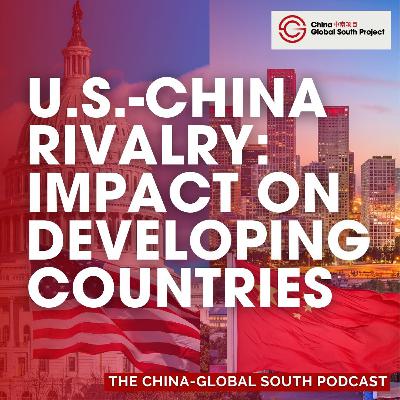
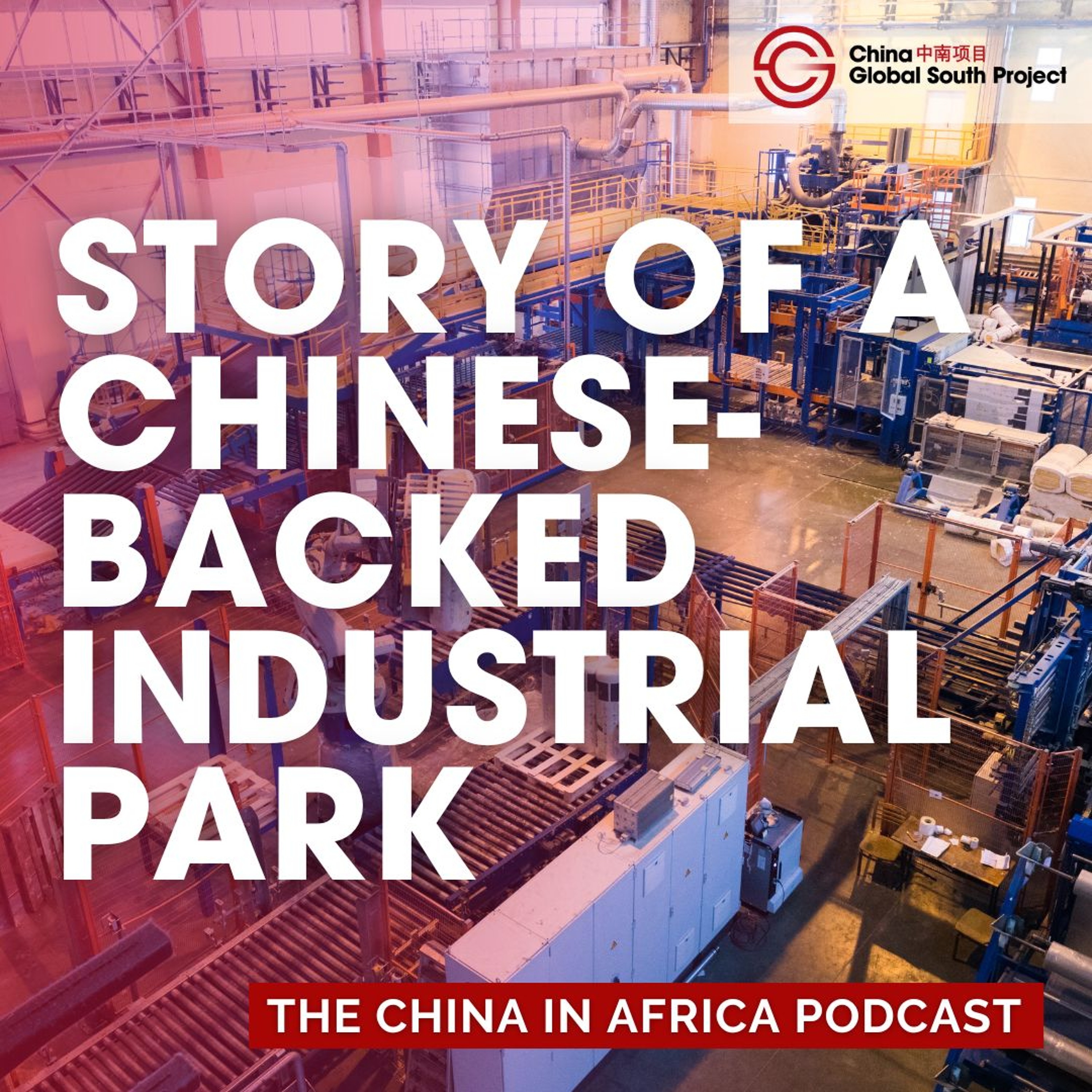
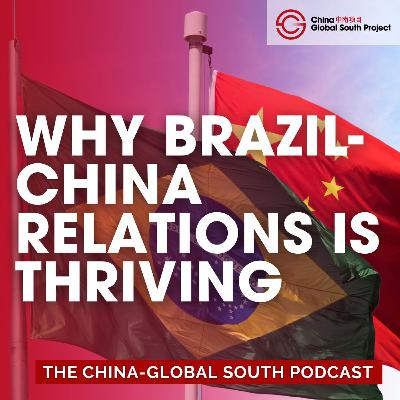
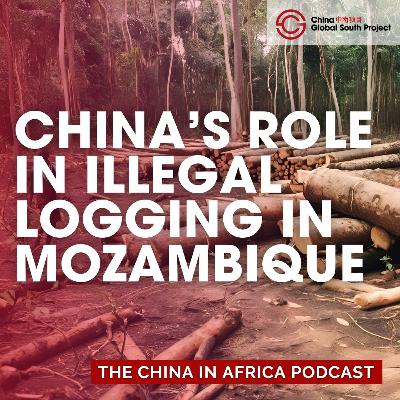
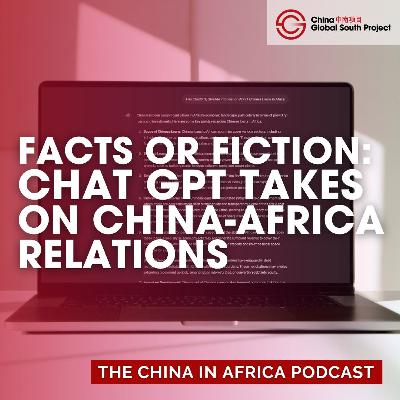
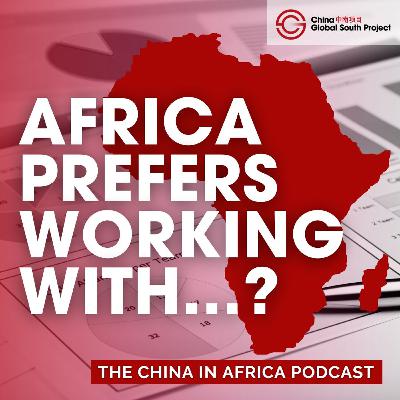

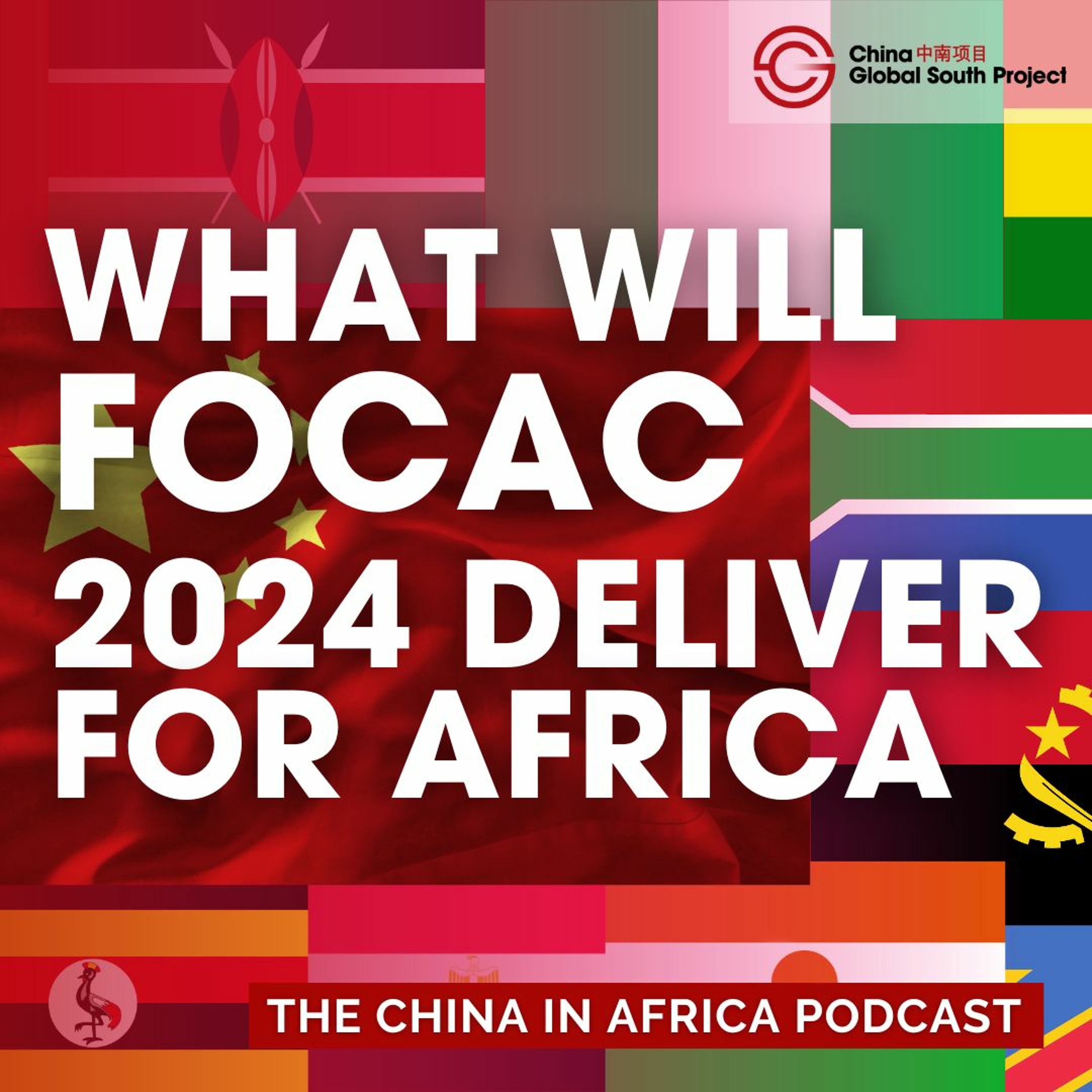
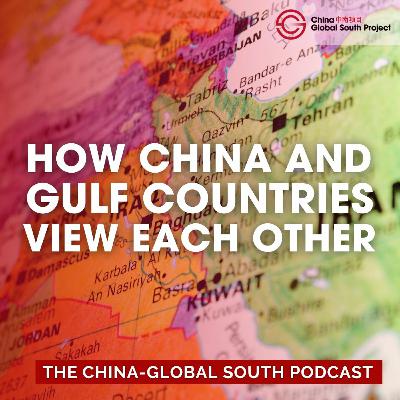

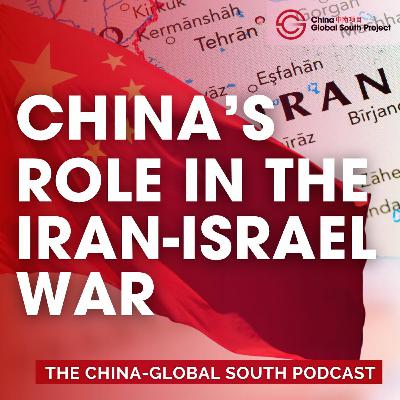
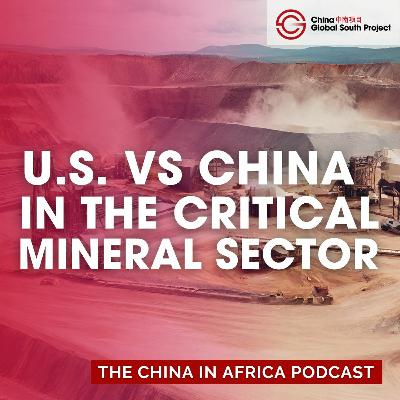
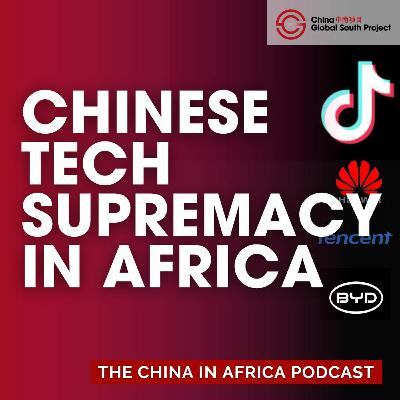
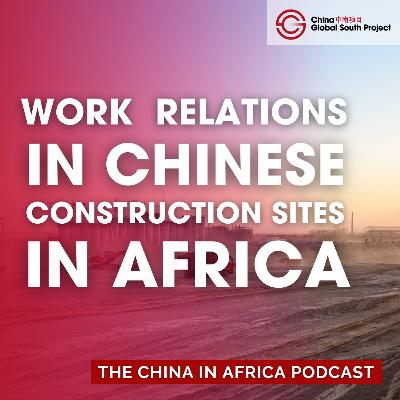

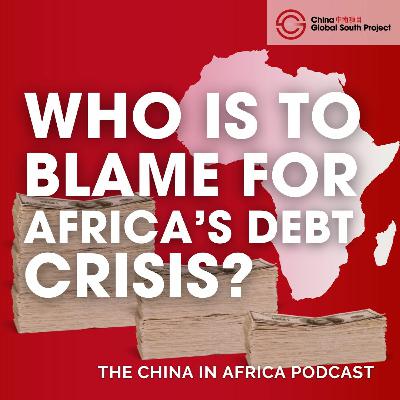

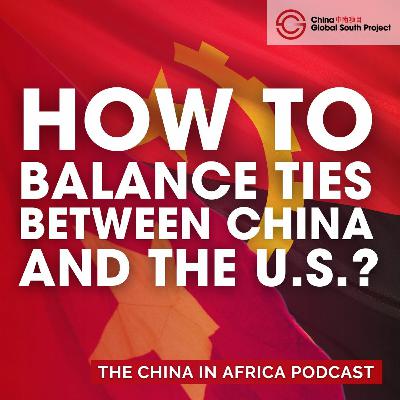
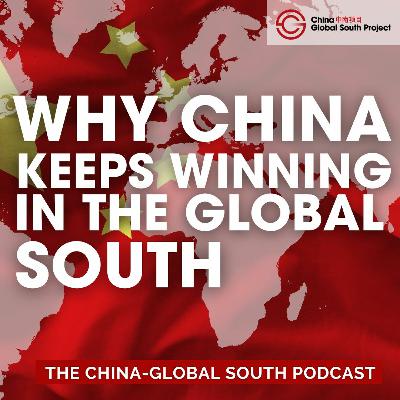
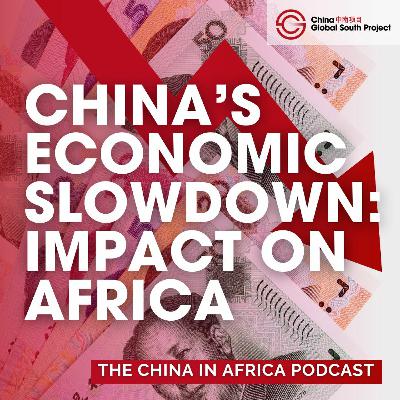



India is also going to be a player in vaccine. Can you through more light on it